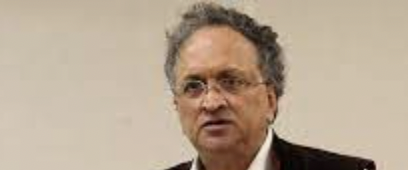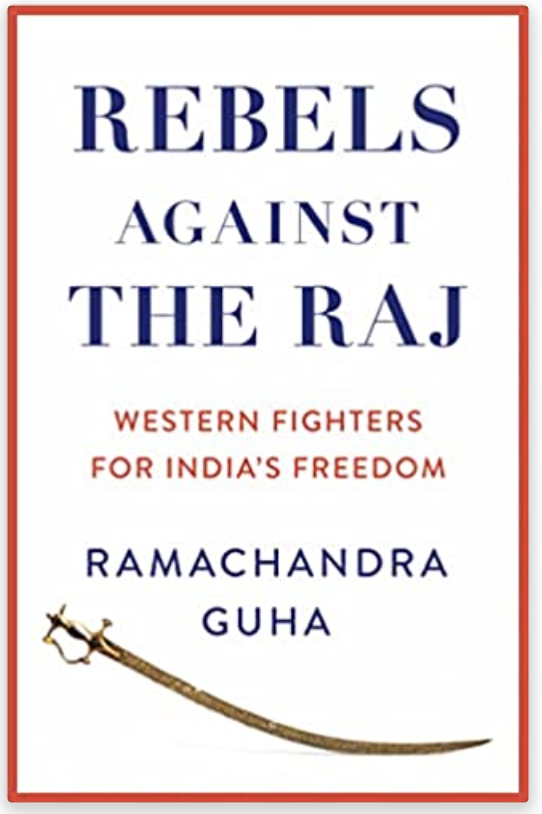
Magnificent Seven who helped India


An extraordinary history of resistance and the fight for Indian independence from Ramachandra Guha, biographer of Mahatma Gandhi and historian of India, tells the little-known story of seven people who chose to struggle for a country other than their own: foreigners to India who across late 19th to late 20th century arrive to join the freedom movement fighting for independence.
Of the seven, four were British, two American, and one Irish, four men, three women. Before and after being jailed or deported they did remarkable and pioneering work in a variety of fields, journalism, social reform, education, organic agriculture, environmentalism.
The author tells his morality tale and says “ This is world governed by paranoia and nationalist xenophobia, with the rise of jingoism, in country after country, and a corresponding contempt for ideas and individuals that emanate from outside the borders of one’s nations”.
Guha calls out India’s Narendra Modi, China’s Xi Jinping, Donald Trump and white supremacists in the US, and Boris Johnson and Brexiters in England.
They see themselves, he says, as “uniquely blessed by history and by god” and wrongly believe that they do not need the kind of help afforded to Gandhi and Jawaharlal Nehru by the seven outsiders whose political and social campaigns to develop India and extract it from the clutches of the British Raj are recorded in this book.
The book tells stories of seven individuals each renegade motivated by idealism and genuine sacrifice, each connected to Gandhi, though some as acolytes where others found endless infuriation in his views, each understanding they would likely face prison sentences for their resistance, and likely live and die in India, each one leaving a profound impact on the region in which they worked their legacies continuing through the institutions they founded and the generations and individuals they inspired.
Through the entwined lives, wonderfully told by one of the world’s finest historians, we reach deep insights into relations between India and the West, and India’s story as a country searching for its identity and liberty beyond British colonial rule.
Two women Annie Besant, a Theosophist who left for a six-week tour of Ceylon and India in 1892 and stayed for 40 years, became the first woman to be elected president of the Indian National Congress, and Madelene Slade, an English naval officer’s daughter and piano player who devoted her life to Gandhi from the time she moved to his ashram in 1925, when she was in her early 30s. renamed by Gandhi as Mira, and appointed his de facto daughter, and “wanted to be the one to peel his fruit and pour his goats’ milk into a tumbler, the one to keep track of his blood pressure and his bowel movement”.
Besant ended up criticising Gandhi because she regarded his civil disobedience movement as too extreme, Gandhi often found Mira’s solicitousness suffocating.
The seven foreigners played an important role in the development of Indian newspapers, academic Institutions and political and social movements.
BG ( Benjamin) Horniman, who was obliged to hide his homosexuality because of the social conventions of the time, moved from journalism in Portsmouth and London to become a campaigning newspaper editor in Bombay. In The Statesman, the establishment newspaper in Calcutta “ writing sonorous editorials in the morning before going to the races in the afternoon and to the Bengal Club for drinks and dinner “ but he opted to write about rural distress and campaign for Indian rights to become “ the most lived Englishmabn in Bombay and the most respected editor in India.”
Samuel, later Satyanand, Stokes, an American Quaker and initially a Chrsitian social worker, helped abolish forced labour in the foothills of the Himalayas and went on to establish the commercial apple cultivation in the region that still thrives even today. He finally became a Hindu.
Philip Spratt, a communist out of Cambridge university, married the daughter of a Tamil communist and became an active journalist and writer who eventually ended up a liberal.
Dick Keithahn, who started as an American missionary, worked to educate and provide healthcare for villagers in south India, while Catherine Mary Heilemann, renamed Sarala – set up a girls’ school and was a pioneering environmentalist campaigner in north India.
There was great diversity of opinion in the west about the future of India and other colonies.
Guha is most aggrieved critic of Modi and his Hindu nationalist Bharatiya Janata Party and laments the rise of nativism and xenophobia in recent decades.
Guha mentions Indian polymath Rabindranath Tagore writing in 1908, praised western enlightenment and compellingly chided those who think they have nothing to discover from outsiders.
Tagore wrote: “Our forefathers, three thousand years ago, had finished extracting all that was of value from the universe , is not a worthy thought. We are not so fortunate, nor the universe so poor”.
Rebels Against the Raj: Western Fighters for India’s Freedom by Ramchandra Guha, William Collins £25/ Knopf $35, 696 pages.
